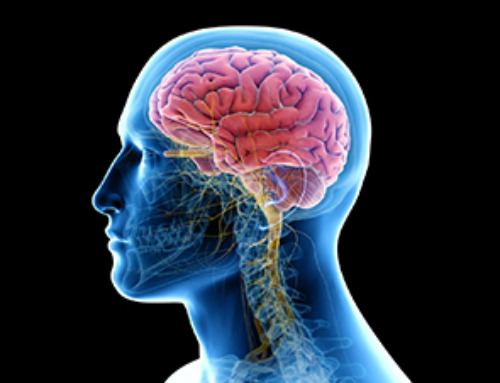To examine the global state of AI ethics, a team of researchers from Brazil performed a systematic review and meta-analysis of global guidelines for AI use. Publishing October 13 in in the journal Patterns, the researchers found that, while most of the guidelines valued privacy, transparency, and accountability, very few valued truthfulness, intellectual property, or children’s rights. Additionally, most of the guidelines described ethical principles and values without proposing practical methods for implementing them and without pushing for legally binding regulation.
“Previous work predominantly centered around North American and European documents, which prompted us to actively seek and include perspectives from regions such as Asia, Latin America, Africa, and beyond,” says lead author Nicholas Kluge Corrêa of the Pontifical Catholic University of Rio Grande do Sul and the University of Bonn.
To determine whether a global consensus exists regarding the ethical development and use of AI, and to help guide such a consensus, the researchers conducted a systematic review of policy and ethical guidelines published between 2014 and 2022.
From this, they identified 200 documents related to AI ethics and governance from 37 countries and six continents and written or translated into five different languages (English, Portuguese, French, German, and Spanish). These documents included recommendations, practical guides, policy frameworks, legal landmarks, and codes of conduct.
Then, the team conducted a meta-analysis of these documents to identify the most common ethical principles, examine their global distribution, and assess biases in terms of the type of organizations or people producing these documents.
The researchers found that the most common principles were transparency, security, justice, privacy, and accountability, which appeared in 82.5%, 78%, 75.5%, 68.5%, and 67% of the documents, respectively.
The least common principles were labor rights, truthfulness, intellectual property, and children/adolescent rights, which appeared in 19.5%, 8.5%, 7%, and 6% of the documents, and the authors emphasize that these principles deserve more attention. For example, truthfulness—the idea that AI should provide truthful information—is becoming increasingly relevant with the release of generative AI technologies like ChatGPT. And since AI has the potential to displace workers and change the way we work, practical measures are to avoid mass unemployment or monopolies.
The researchers also identified several biases in terms of where these guidelines were produced and who produced them. The researchers noted a gender disparity in terms of authorship. Though 66% of samples had no authorship information, the authors of the remaining documents more often had male names (549 = 66% male, 281 = 34% female).
Geographically, most of the guidelines came from countries in Western Europe (31.5%), North America (34.5%), and Asia (11.5%), while less than 4.5% of the documents originated in South America, Africa, and Oceania combined. Some of these imbalances in distribution may be due to language and public access limitations, but the team says that these results suggest that many parts of the Global South are underrepresented in the global discourse on AI ethics.
In some cases, this includes countries that are heavily involved in AI research and development, such as China, whose output of AI-related research increased by over 120% between 2016 and 2019.
“Our research demonstrates and reinforces our call for the Global South to wake up and a plea for the Global North to be ready to listen and welcome us,” says co-author Camila Galvão of the Pontifical Catholic University of Rio Grande do Sul. “We must not forget that we live in a plural, unequal, and diverse world. We must remember the voices that, until now, haven’t had the opportunity to claim their preferences, explain their contexts, and perhaps tell us something that we still don’t know.”
As well as incorporating more voices, the researchers say that future efforts should focus on how to practically implement principles of AI ethics. “The next step is to build a bridge between abstract principles of ethics and the practical development of AI systems and applications,” says Santos.
More information: Nicholas Kluge Corrêa et al, Worldwide AI ethics: a review of 200 guidelines and recommendations for ai governance, Patterns (2023). DOI: 10.1016/j.patter.2023.100857. www.cell.com/patterns/fulltext … 2666-3899(23)00241-6
News
Smaller Than a Grain of Salt: Engineers Create the World’s Tiniest Wireless Brain Implant
A salt-grain-sized neural implant can record and transmit brain activity wirelessly for extended periods. Researchers at Cornell University, working with collaborators, have created an extremely small neural implant that can sit on a grain of [...]
Scientists Develop a New Way To See Inside the Human Body Using 3D Color Imaging
A newly developed imaging method blends ultrasound and photoacoustics to capture both tissue structure and blood-vessel function in 3D. By blending two powerful imaging methods, researchers from Caltech and USC have developed a new way to [...]
Brain waves could help paralyzed patients move again
People with spinal cord injuries often lose the ability to move their arms or legs. In many cases, the nerves in the limbs remain healthy, and the brain continues to function normally. The loss of [...]
Scientists Discover a New “Cleanup Hub” Inside the Human Brain
A newly identified lymphatic drainage pathway along the middle meningeal artery reveals how the human brain clears waste. How does the brain clear away waste? This task is handled by the brain’s lymphatic drainage [...]
New Drug Slashes Dangerous Blood Fats by Nearly 40% in First Human Trial
Scientists have found a way to fine-tune a central fat-control pathway in the liver, reducing harmful blood triglycerides while preserving beneficial cholesterol functions. When we eat, the body turns surplus calories into molecules called [...]
A Simple Brain Scan May Help Restore Movement After Paralysis
A brain cap and smart algorithms may one day help paralyzed patients turn thought into movement—no surgery required. People with spinal cord injuries often experience partial or complete loss of movement in their arms [...]
Plant Discovery Could Transform How Medicines Are Made
Scientists have uncovered an unexpected way plants make powerful chemicals, revealing hidden biological connections that could transform how medicines are discovered and produced. Plants produce protective chemicals called alkaloids as part of their natural [...]
Scientists Develop IV Therapy That Repairs the Brain After Stroke
New nanomaterial passes the blood-brain barrier to reduce damaging inflammation after the most common form of stroke. When someone experiences a stroke, doctors must quickly restore blood flow to the brain to prevent death. [...]
Analyzing Darwin’s specimens without opening 200-year-old jars
Scientists have successfully analyzed Charles Darwin's original specimens from his HMS Beagle voyage (1831 to 1836) to the Galapagos Islands. Remarkably, the specimens have been analyzed without opening their 200-year-old preservation jars. Examining 46 [...]
Scientists discover natural ‘brake’ that could stop harmful inflammation
Researchers at University College London (UCL) have uncovered a key mechanism that helps the body switch off inflammation—a breakthrough that could lead to new treatments for chronic diseases affecting millions worldwide. Inflammation is the [...]
A Forgotten Molecule Could Revive Failing Antifungal Drugs and Save Millions of Lives
Scientists have uncovered a way to make existing antifungal drugs work again against deadly, drug-resistant fungi. Fungal infections claim millions of lives worldwide each year, and current medical treatments are failing to keep pace. [...]
Scientists Trap Thyme’s Healing Power in Tiny Capsules
A new micro-encapsulation breakthrough could turn thyme’s powerful health benefits into safer, smarter nanodoses. Thyme extract is often praised for its wide range of health benefits, giving it a reputation as a natural medicinal [...]
Scientists Develop Spray-On Powder That Instantly Seals Life-Threatening Wounds
KAIST scientists have created a fast-acting, stable powder hemostat that stops bleeding in one second and could significantly improve survival in combat and emergency medicine. Severe blood loss remains the primary cause of death from [...]
Oceans Are Struggling To Absorb Carbon As Microplastics Flood Their Waters
New research points to an unexpected way plastic pollution may be influencing Earth’s climate system. A recent study suggests that microscopic plastic pollution is reducing the ocean’s capacity to take in carbon dioxide, a [...]
Molecular Manufacturing: The Future of Nanomedicine – New book from Frank Boehm
This book explores the revolutionary potential of atomically precise manufacturing technologies to transform global healthcare, as well as practically every other sector across society. This forward-thinking volume examines how envisaged Factory@Home systems might enable the cost-effective [...]
New Book! NanoMedical Brain/Cloud Interface – Explorations and Implications
New book from Frank Boehm, NanoappsMedical Inc Founder: This book explores the future hypothetical possibility that the cerebral cortex of the human brain might be seamlessly, safely, and securely connected with the Cloud via [...]





















